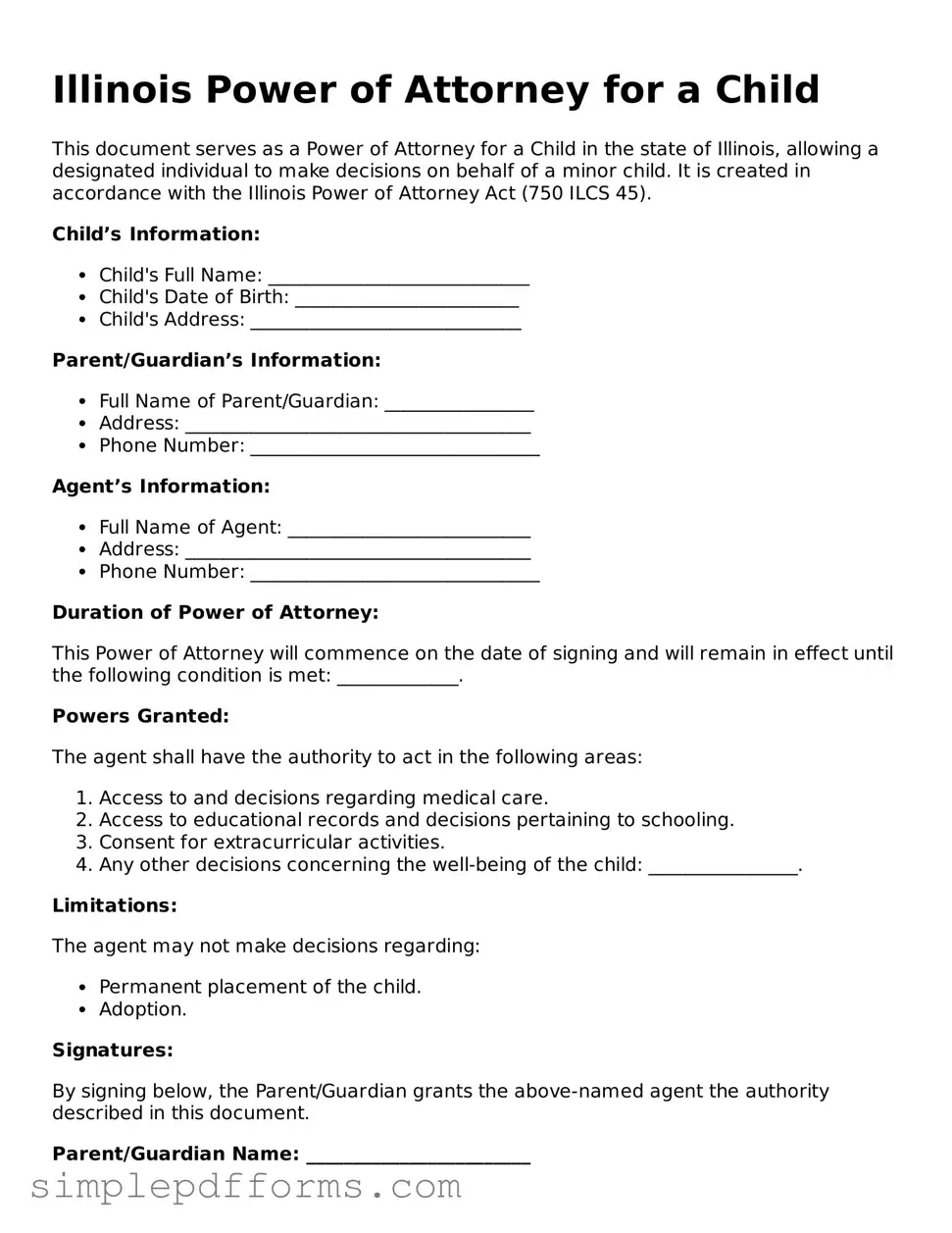When filling out the Illinois Power of Attorney for a Child form, individuals often make several common mistakes that can lead to complications. One frequent error is failing to provide accurate information about the child. It is essential to include the child's full name, date of birth, and current address. Missing or incorrect details can create confusion and may delay the legal process.
Another mistake involves not specifying the powers granted to the agent. The form allows for a range of decisions, from medical care to educational choices. If the powers are too vague or not clearly defined, the agent may face challenges in making timely decisions on behalf of the child.
People sometimes neglect to sign and date the form correctly. Both the parent and the agent must provide their signatures in the designated areas. Failing to do so can render the document invalid. Additionally, some individuals overlook the requirement for witnesses or notarization, which can also invalidate the Power of Attorney.
Inaccurate information about the agent can lead to issues down the line. It is vital to ensure that the agent's full name, address, and contact information are correct. If the agent cannot be reached in an emergency, it defeats the purpose of having a Power of Attorney.
Another common oversight is not discussing the responsibilities with the chosen agent beforehand. The agent should fully understand their role and the powers they will have. Without this conversation, misunderstandings may arise, which can complicate matters when decisions need to be made.
Some people forget to update the Power of Attorney when circumstances change. Life events such as divorce, relocation, or changes in the child's needs can necessitate a review and revision of the document. Neglecting to update it can lead to outdated information being used in critical situations.
Individuals often make the mistake of not keeping copies of the completed form. It is crucial to retain a copy for personal records and to provide copies to the agent and any relevant institutions, such as schools or healthcare providers. This ensures that everyone involved is aware of the arrangement.
Another error is assuming that the Power of Attorney remains in effect indefinitely. The form can specify a time frame or be revoked at any time by the parent. Understanding the duration of the Power of Attorney is essential to avoid any lapses in authority.
People sometimes fail to consider the implications of granting power to more than one agent. While it is possible to appoint co-agents, it can lead to conflicts if they do not agree on decisions. Clarity about how decisions will be made is crucial when multiple agents are involved.
Lastly, individuals often overlook the importance of reviewing the form regularly. Laws and regulations can change, and staying informed about any updates to the Power of Attorney process in Illinois is vital. Regular reviews ensure that the document remains valid and reflects current intentions.

